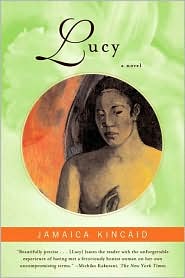
Near the end of Act II, in Translations, we see an exchange of words between Maire and Yolland. These two characters speak two completely different languages, yet seem to "fall in love" with each other. I put this in quotes because I do not believe it is realistic. A huge part of two humans connecting and relating is being able to communicate. Maire knows a few words in Yolland's language, and vice versa, but this is not enough to form a bond for any sort of relationship. I think they are infatuated with one another's language and looks, but they would need a stronger foundation to fall in love. I've heard of love stories like this, but I don't think that this is a common thing that would have a high chance of lasting. I believe in love, but I also believe you need a strong base for a successful relationship, mostly driven by the ability to communicate needs, wants, and interests, etc... While Maire and Yolland seem to be thinking relatively the same thing, the two characters have a hard time expressing it so that the other can understand. The kiss that the two share is acknowledgment that they understand, but for them to love each other would take much more.




